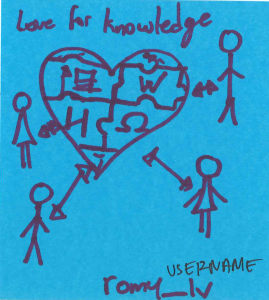
In today’s digital landscape, Software as a Service (SaaS) has become everyone’s preferred model for delivering software applications over the Internet as it plays a crucial role in building robust, scalable, and efficient software/ applications. But with a number of frameworks available for the development of SaaS, choosing the right one is very important as it can affect the success of your business. So, in this blog, you will get to know a little bit about what are SaaS development frameworks, important factors you should consider when selecting one, and the five best frameworks for SaaS application development. Working with a trusted SaaS development company can further streamline your development process and ensure the successful implementation of the chosen framework.
What is a SaaS Development Framework?
A SaaS development framework is a set of tools, libraries, and conventions that facilitate the development, deployment, and maintenance of SaaS applications. These frameworks include features such as user authentication, data management, scalability options, and integration capabilities, allowing developers to speed up the development process and deliver high-quality applications.
Additionally, software product engineering plays a crucial role in ensuring the efficiency and effectiveness of these frameworks, as it encompasses the systematic application of engineering approaches to the design, development, testing, and maintenance of software products. SaaS development frameworks often incorporate best practices in security to ensure that applications are robust against cyber threats. They may also offer built-in support for enabling efficient management of multiple users or organizations within a single instance of the application.
How to Choose the Best SaaS Framework
Important factors to consider when choosing the best SaaS frameworks:
1. Scalability
Ensure that the framework you choose can scale seamlessly as your user base grows as it is essential for handling increasing traffic, data volumes, and user interactions without compromising performance.
2. Business Requirements
Consider your specific business requirements and objectives and then choose a framework that aligns with your project’s goals, industry standards, and compliance regulations.
3. Preferred Programming Language
Choose a framework that suits your team’s preferred programming language and ecosystem. Because familiarity with the programming language is very important to expedite development and troubleshooting processes.
4. Development Pricing
Evaluate the total cost of ownership including evrything like licensing fees, hosting costs, and ongoing maintenance expenses. Then, opt for a framework that offers a cost-effective solution without sacrificing quality or features.
5. Reliability and Sustainability
Select a framework with a robust community support system, regular updates, and a proven track record of reliability and sustainability. This ensures long-term support, security patches, and compatibility with evolving technologies.
6. Customer Support
Consider the level of customer support provided by the framework’s developers or community as it can significantly impact your development workflow and troubleshooting efforts.
5 Best SaaS Frameworks
Now, let’s explore the five best SaaS software development frameworks and their unique features, use cases, and benefits:
1. React
React is a JavaScript library for building user interfaces and is developed by Facebook. It follows a component-based architecture, allowing developers to create reusable UI components and manage state efficiently.
Features:
– Virtual DOM for efficient rendering
– Component reusability and composability
– Unidirectional data flow with Flux or Redux
– JSX syntax for declarative UI development
Use Cases:
– Real-time dashboards and analytics platforms
– Collaborative productivity tools
– Interactive data visualization applications
Benefits:
– High performance and responsiveness
– Rich ecosystem of libraries and components
– Strong community support and active development
2. Angular
Angular is a TypeScript-based web application framework maintained by Google. It offers a comprehensive solution for building single-page applications (SPAs) and dynamic web interfaces.
Features:
– Two-way data binding for automatic UI updates
– Dependency injection for modular and testable code
– RxJS for reactive programming and asynchronous data handling
– Angular CLI for project scaffolding and code generation
Use Cases:
– Enterprise-scale CRM and ERP systems
– E-commerce platforms with complex user interactions
– Progressive web applications (PWAs) for cross-platform compatibility
Benefits:
– Full-fledged framework with built-in tools and features
– Official support and documentation from Google
– Mature ecosystem with a strong focus on scalability and performance
3. Laravel
Laravel is a PHP framework known for its elegant syntax, expressive API, and developer-friendly approach. It provides a robust foundation for building web applications with MVC architecture and modern PHP practices.
Features:
– Blade templating engine for dynamic content rendering
– Eloquent ORM for database management and query building
– Artisan CLI for automated tasks and code generation
– Laravel Mix for asset compilation and management
Use Cases:
– Content management systems (CMS) and blogging platforms
– E-commerce storefronts with custom workflows
– API-driven applications for mobile and web integration
Benefits:
– Developer-friendly syntax and conventions
– Comprehensive documentation and tutorials
– Active community with a large ecosystem of packages and extensions
4. Symfony
Symfony is a PHP framework renowned for its flexibility, scalability, and modularity. It provides reusable components and libraries for building – web applications, APIs, and microservices.
Features:
– Component-based architecture for standalone usage
– Twig templating engine for flexible and secure HTML rendering
– Doctrine ORM for object-relational mapping and database abstraction
– Symfony Flex for simplified project configuration and dependency management
Use Cases:
– Enterprise-grade web applications with complex business logic
– RESTful APIs for mobile and IoT devices
– High-performance microservices architectures
Benefits:
– Modular architecture for easy customization and extension
– Long-term support and backward compatibility
– Strong focus on security and following best practices
5. Django
Django is a high-level Python web framework known for its simplicity, versatility, and scalability. It follows the “batteries-included” philosophy which is about providing out-of-the-box solutions for common development tasks.
Features:
– Object-relational mapping with Django ORM
– Admin interface for database management and content administration
– Django REST Framework for building APIs with Django
– Django Forms for easy form handling and validation
Use Cases:
– Social networking platforms with user authentication and profiles
– Data-driven web applications with CRUD operations
– Geographic information systems (GIS) and mapping applications
Benefits:
– Rapid development with built-in features and conventions
– Pythonic syntax and clean codebase
– Active community and extensive third-party ecosystem
Conclusion
Choosing the right SaaS product development framework is important for building scalable, reliable, and maintainable SaaS applications. To do so, we can consider factors such as scalability, business requirements, programming language preferences, development pricing, reliability, and customer support, you can make an informed decision that aligns with your project goals. Whether you priority is performance, developer productivity, or ecosystem maturity, there’s a SaaS development framework suitable for your next project but it’s essential to weigh these considerations carefully to ensure the success and sustainability of your application in the constantly evolving digital landscape. Moreover, using the expertise of a reputable React Native app development company can also optimize the capabilities of your SaaS application, ensuring seamless performance across all platforms.




